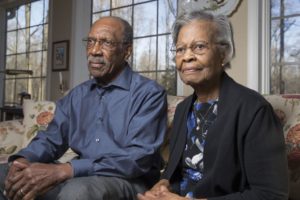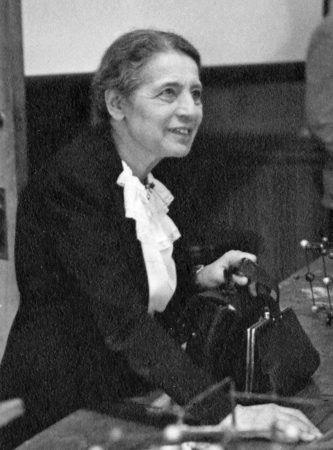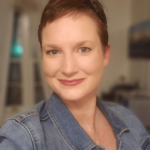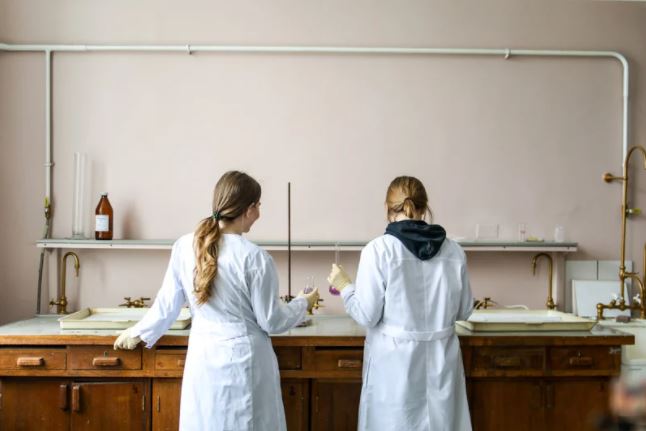
Today is International Women and Girls in Science Day, and to celebrate this day, we would like to highlight a few female scientists that we admire and how their discoveries have helped our world today. Many people may read the title and believe that science and politics don’t mix, but whether we like it or not, science and politics are intertwined as long as there is government.
In what is often a male-dominated field, the works of many female scientists have been overlooked throughout history. These unnoticed women didn’t receive recognition for their contributions until much later in life or even after their deaths. Have you ever heard of Dr. Gladys West, Lise Meitner, or Elinor Ostrom? If not, after reading this blog today, we hope that you will have a better appreciation for these women and their discoveries/ contributions to science.
Dr. Gladys West, whom many of us know from the movie Hidden Figures, has contributed so much to science that pinpointing one specific advancement is difficult. For the sake of this blog, we would like to focus on her mathematical calculations that helped in the development of GPS. Without these precise calculations, you would never be able to accurately predict getting from point A to B, personal and political boundaries would never be absolute, and satellite technology wouldn’t be something we rely on in our daily lives.
Political boundaries such as congressional districts are based on demographic data and population size taken from the decennial census, and then the state government sets boundaries between districts. With Dr. Gladys West’s GPS calculations, she has made mapping these boundaries a more timely and precise endeavor. Of course, we could argue that this increases the state’s ability to gerrymander, which is true, but without Dr. West, we wouldn’t be having this discussion at all.
Physicist, Lise Meitner, was the first to suggest nuclear fission. Her colleague, Otto Hahn, was awarded the Nobel Prize in 1945 for discovering nuclear fission, and it wasn’t until 1966 that Meitner was recognized for her contributions to the discovery. Without her initiatives in nuclear fission, we wouldn’t have nuclear energy as a clean and sustainable energy source. However, many government officials argue that it isn’t beneficial and solar or wind energy is a better option. Despite that argument, 28 states and 15 countries rely on nuclear power as a clean alternative to coal and gas, and currently, in the U.S., 20% of our electricity comes from nuclear energy.
Not only does nuclear fission create clean energy, but it also helps with medical treatments, space exploration, criminal investigations, and agriculture. For example, one-third of hospitalized patients are treated with radiation from imaging to cancer treatments, and radioisotopes are used to identify fingerprints, paint, glass, and tape in criminal cases.
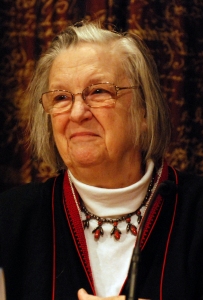
Elinor Ostrom
American Economist Elinor Ostrom is known for her work in natural resource management and for challenging Ecologist Garrett Hardin’s “Tragedy of the Commons” theory, which theorizes that where people that have unregulated access to natural resources such as fisheries, forests, and freshwater will deplete those resources by acting in their own self-interest. Hardin believed that the solution to this problem was to impose private property rights over land and for the government to regulate natural resources.
Ostrom challenged Hardin’s “Tragedy of the Commons” theory by reasoning that communities and individuals could successfully manage their own natural resources. Her field research conducted in communities around the world led her to contend that shared resources are best managed when those who benefit from them are located within close proximity to those resources. Furthermore, her research indicated that issues only occurred when outside groups tried to get involved and use their power for personal gain. She believed that government intervention could not be successful without support from local communities and individuals. In 2009, Ostrom became the first woman laureate to receive the Nobel Prize in the field of Economics.
Women in science have had their work questioned for centuries, and now due to the pandemic and COVID-19, many people have begun questioning science again. We, as female scientists, we believe you should always question science. Without questioning it, you can never make advancements.
If your concern is mixing government and science, our suggestion would be to put an end to big government because science will never end.

